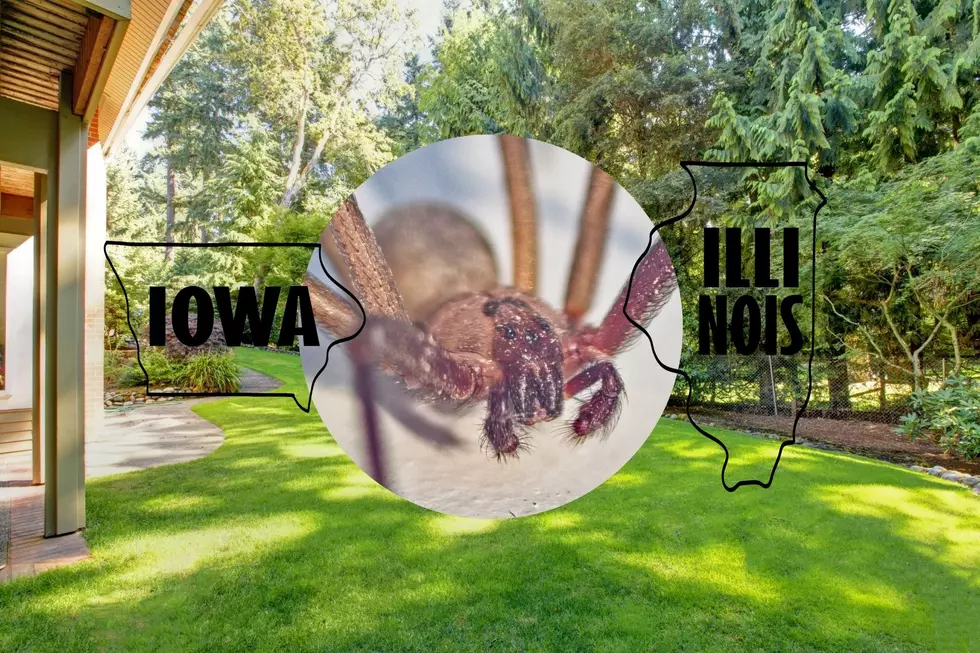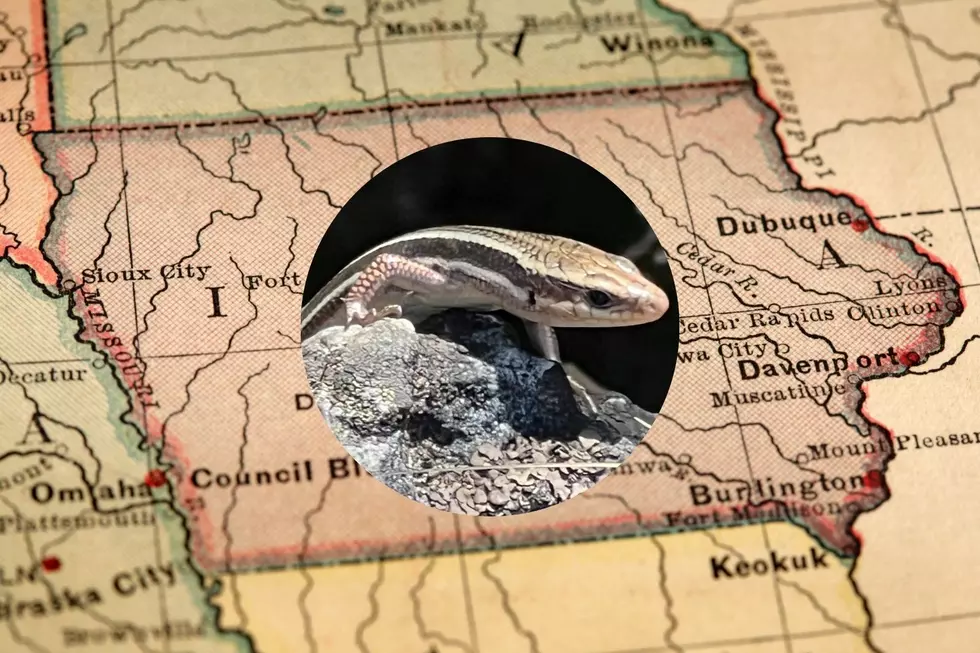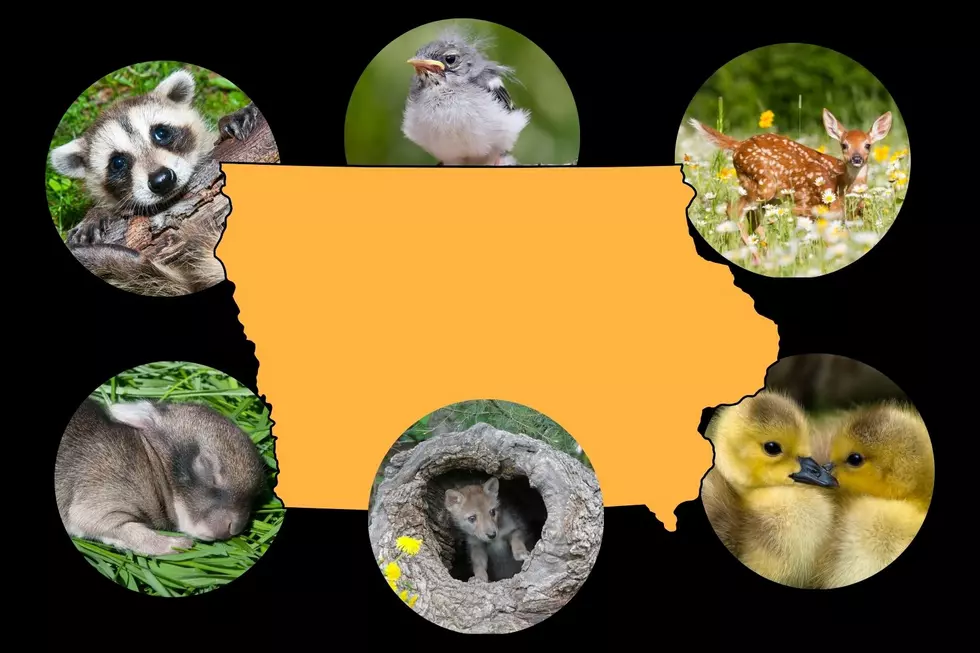
Your Lawn Could Be Attracting This Deadly Spider in Iowa & Illinois
Let's get this out of the way, right off the bat- spiders are good! You read that right, spiders are good; however, there are certain eight-legged nasties I'd love to never, ever see. And that my friends, is the topic of the day, your lawn care, or lack thereof, could be inviting one of the United States' deadliest spiders into your living area.
The Brown Recluse Spider
Well, let's chat about the critter of my nightmares that occasionally creeps into our lives: the brown recluse spider. These little guys might not be the most welcome guests, but knowing a bit about them can help us coexist peacefully in the Midwest.
Believe it or not, your little patch of green could be playing host to that potentially deadly spider. Here's how. These critters have a penchant for dark, undisturbed places, and if your yard is sporting overgrown shrubs, tall grass, or cluttered areas, well, you might as well roll out the red carpet for them. You get a big spider bonus if you also have unmoved junk, or rarely used equipment outside. Say like a kayak, your bike, lawn care items, even in your untidy shed.
Pristine spider territory. Good luck finding them...
See, brown recluse spiders love nothing more than cozying up in the shadows, where they can hunt for their favorite snacks—small, unsuspecting insects. So, if you've been slacking on the lawn care front and letting things get a bit wild out there, it might be time to break out the mower and trimmers and give those spiders a gentle nudge to find a new hangout spot. You could also treat the perimeter of your home with bug-defense. I'm not condoning spraying your whole yard here, but it's nice to keep your living space to yourself. Bonus, a well-manicured lawn isn't just easy on the eyes—it's also less inviting to our arachnid friends.
Don't forget the hedges.
Meet the Iowa and Illinois Common Nuisance: the Brown Recluse Spider
So, what's the deal with this spider? Well, brown recluse, scientifically known as Loxosceles reclusa, are fairly sneaky arachnids. Like their cousin the green sac spider, they're not huge—usually about an inch long—and they come in shades of brown, yellow, or tan. They like to almost cocoon themselves into web nests in the corners of your house during the day. The one surefire way to spot them though, is their telltale violin-shaped mark.
Speaking of which, How can I Identify a Brown Recluse Spider?
- Six Eyes: Yep, you heard that right. Brown recluse spiders have six eyes arranged in pairs, with one pair in front and two on each side.
- Violin Shape: Look for that distinct violin-shaped mark on their upper back. It's like their signature style!
- Uniformly Colored Legs: No stripes or bands here—just uniformly light-colored legs.
- Abdomen Color: Their abdomen can vary from cream to dark brown, depending on what they've been munching on. But here's the kicker: it'll never have two colors at once.
- No Spines: Unlike some other spiders, brown recluse spiders don't have spines on their legs, just fine hairs.
- Retreat Webs: These spiders are all about privacy. They'll make small retreat webs behind objects or in corners, never out in the open.
Now, before you start freaking out, remember that brown recluse spiders aren't out to get us. They're just doing their own thing, munching on bugs and staying out of sight. But if you do happen to stumble upon one, give it some space and let it carry on with its spider business.
Keeping the Brown Recluse at Bay
Want to minimize your chances of a brown recluse encounter? Keep your surroundings tidy! Regular yard maintenance, like mowing the lawn and trimming bushes, can make your property less appealing to these spiders. And indoors, keep closets and storage spaces neat and organized to reduce hiding spots.
If you suspect a brown recluse infestation, don't panic. Instead, reach out to professional pest control agencies. They've got the know-how and tools to handle these critters safely and effectively. Trying to tackle the problem yourself could lead to more trouble than it's worth, but hey it may be tempting to burn down the whole house and just start again.
The potential scene at my house after discovering a Brown Recluse infestation.
I've been bitten by a Brown Recluse- What do I do now?
A recluse next to a necrotizing bite mark.
- Stay calm: fatalities are rare when treated promptly and appropriately.
- Wash the Area: Start by gently cleaning the bite site with soap and water to remove any dirt or bacteria.
- Elevate the Bite Area: this will reduce swelling and promote circulation.
- Seek Medical Attention: it's crucial to seek immediate medical care. In some cases, hospitalization and surgical treatment may be necessary, especially if the bite leads to tissue damage or systemic symptoms like necrotic flesh.
- Monitor Symptoms: Keep an eye out for worsening symptoms, such as increasing pain, swelling, redness, or the development of a rash. If you notice any concerning changes, seek medical attention promptly.
So, there you have it, folks—a crash course on brown recluse spiders. They may be rarer in the state of Iowa, but their range is over much of the southern sections of our state and much of the state of Illinois. It's important to remember they are here to stay, so, stay informed, keep your yard and house tidy, and don't let these little arachnids cramp your style. Happy spider-spotting!
Plant Some Of These In Your Garden to Keep Mosquitoes Away
Gallery Credit: Michelle Heart
WATCH OUT: These are the deadliest animals in the world
More From Eagle 102.3









